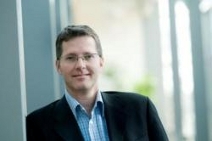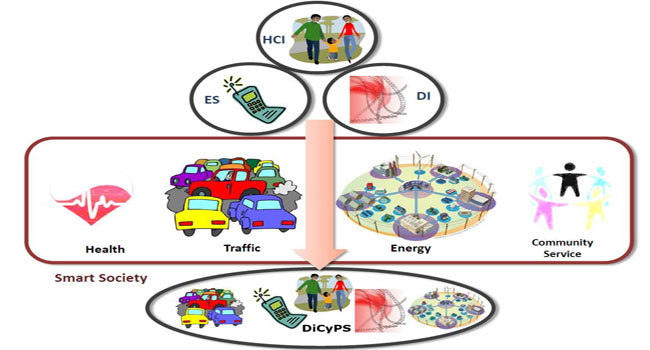New research centre developing IT for the smarter society
Software and data from the IT management of complex physical systems should be utilised for creating even smarter and more user-friendly solutions for society and individuals. This is the basic thought behind a new research centre which as its point of departure zooms in on the fields of traffic and energy. Head of the centre is director of CISS, Kim Guldstrand Larsen.
The new Center for Data-Intensive Cyber-Physical Systems (DiCyPS) at Aalborg University will have a budget of close to 75 mio DKK, of which InnovationsFonden funds the centre with 32.5 mio DKK over the course of the next six years. Head of the centre, professor Kim Guldstrand Larsen from the Department of Computer Science, is a researcher within embedded software systems, and on board are also experts within big data and usability. They are to collaborate with traffic and energy researchers, because within these exact fields there is extensive use of physical systems with lots of IT and data. FlexDanmark A/S, Energistyrelsen and a series of other companies and public authorities participate with concrete examples:
- Modern cars are filled with embedded software and sensors, and public transport is tracked due to payment and route planning. Likewise in the energy sector, a lot of IT is used for optimisation and balancing between production and consumption. Our basic idea is that we can use the underlying technology and all this data for something more and create the intelligent society of the future, Kim Guldstrand Larsen explains.
The aim is both to develop the IT infrastructure which will make this possible and the solutions that can benefit from it. The design of each demonstration will depend on the companies who have agreed to participate.
- In "cyberphysical" systems there are a lot of small sensors and tiny computers in a network that is used for monitoring and managing our physical reality. We need to combine the embedded systems and huge amounts of data in a new and better way, so that the users can also understand it. We will build a test platform, enabling a number of the experiments to be carried out on a grand scale, while others will result in prototypes, Kim Guldstrand Larsen says.
But the reseachers' results will not only concern transport or energy - but about everything and IT:
- It is our claim that in overall terms, it is the same IT solutions that are needed across sectors, no matter whether we are talking traffic, energy, healthcare or something else entirely. We need generic recipes for how data is gathered and how people can interact with it. We thing that at the moment we are in need of some very basic IT infrastructures before we can get the "smart society" and the "smart cities" that the regions and municipalities are talking about," Kim Guldstrand Larsen emphasises.
Contact
- Kim Guldstrand Larsen, professor, Department of Computer Science, Aalborg University, tlf. 2217 1159.

